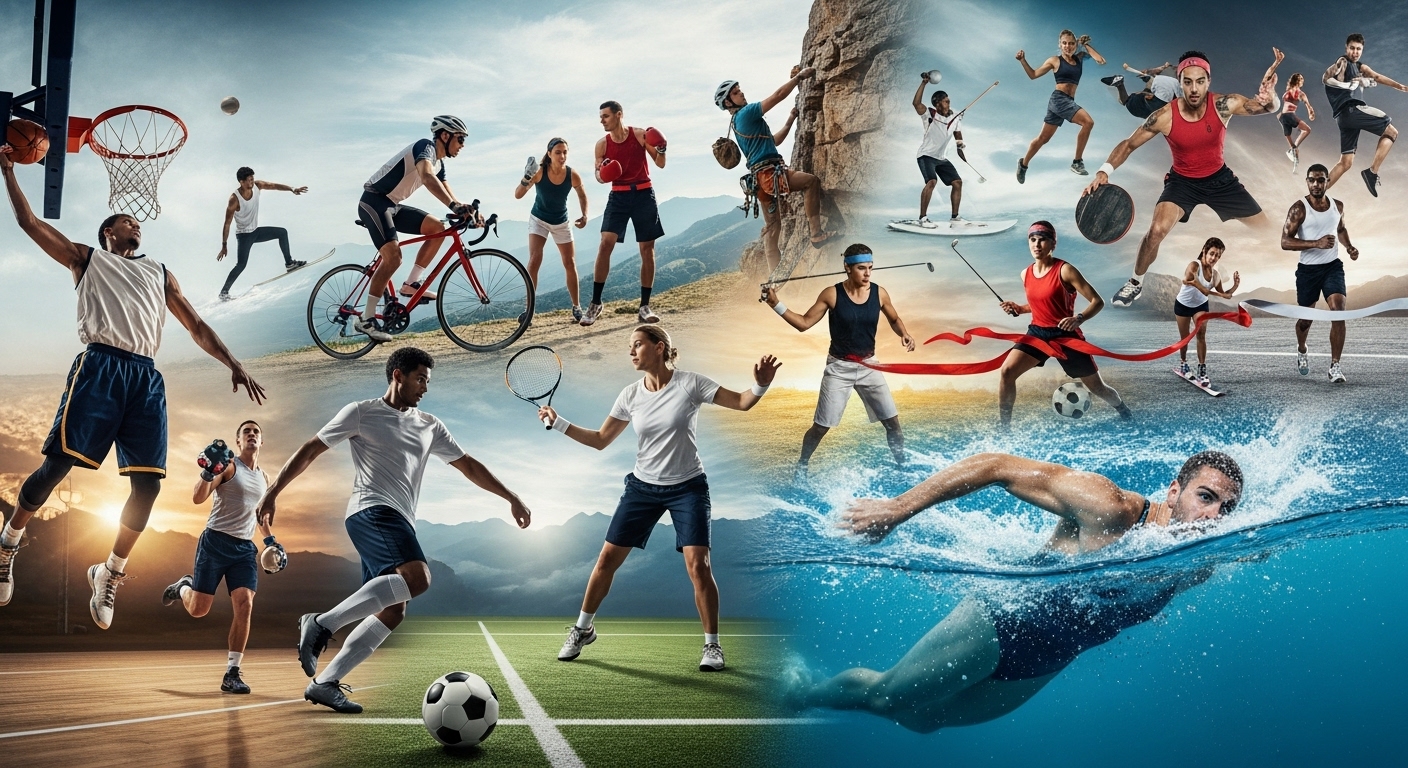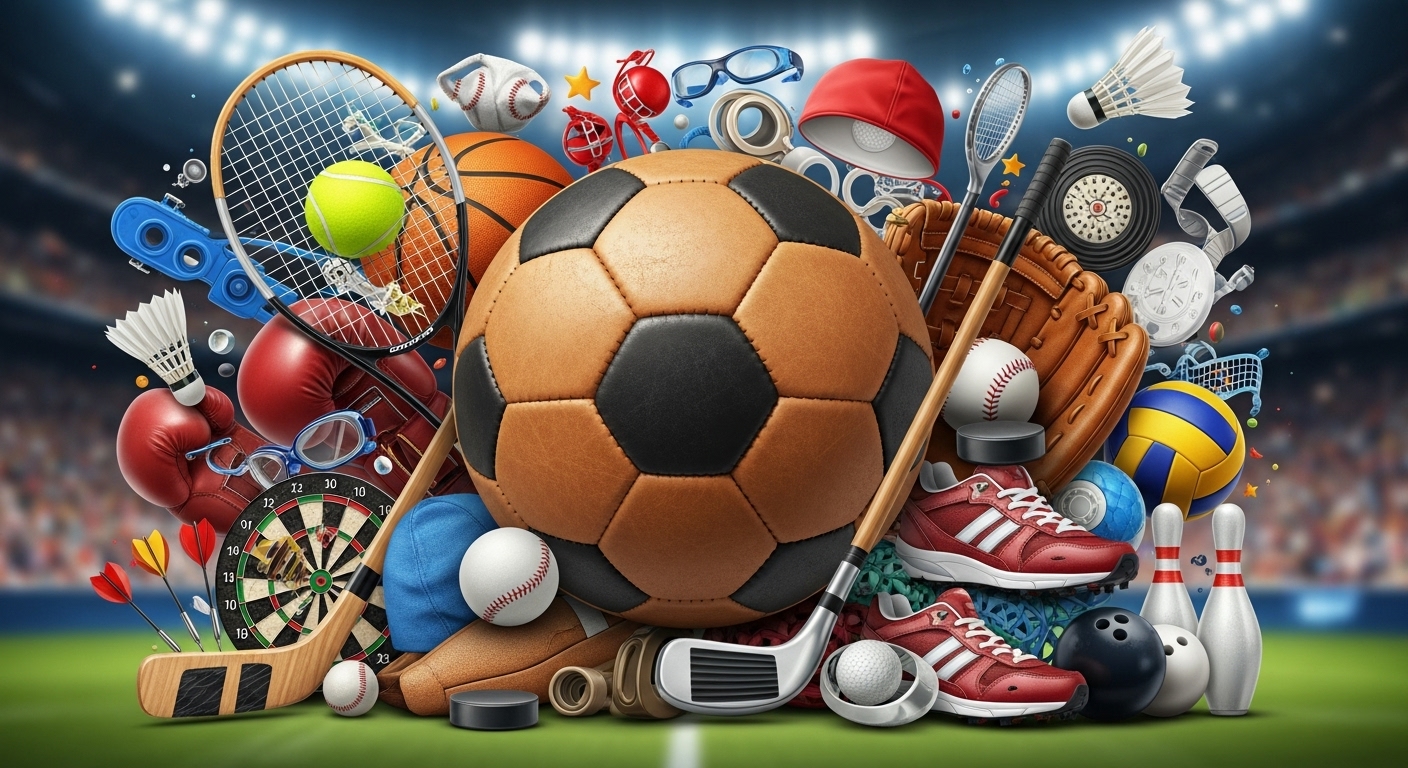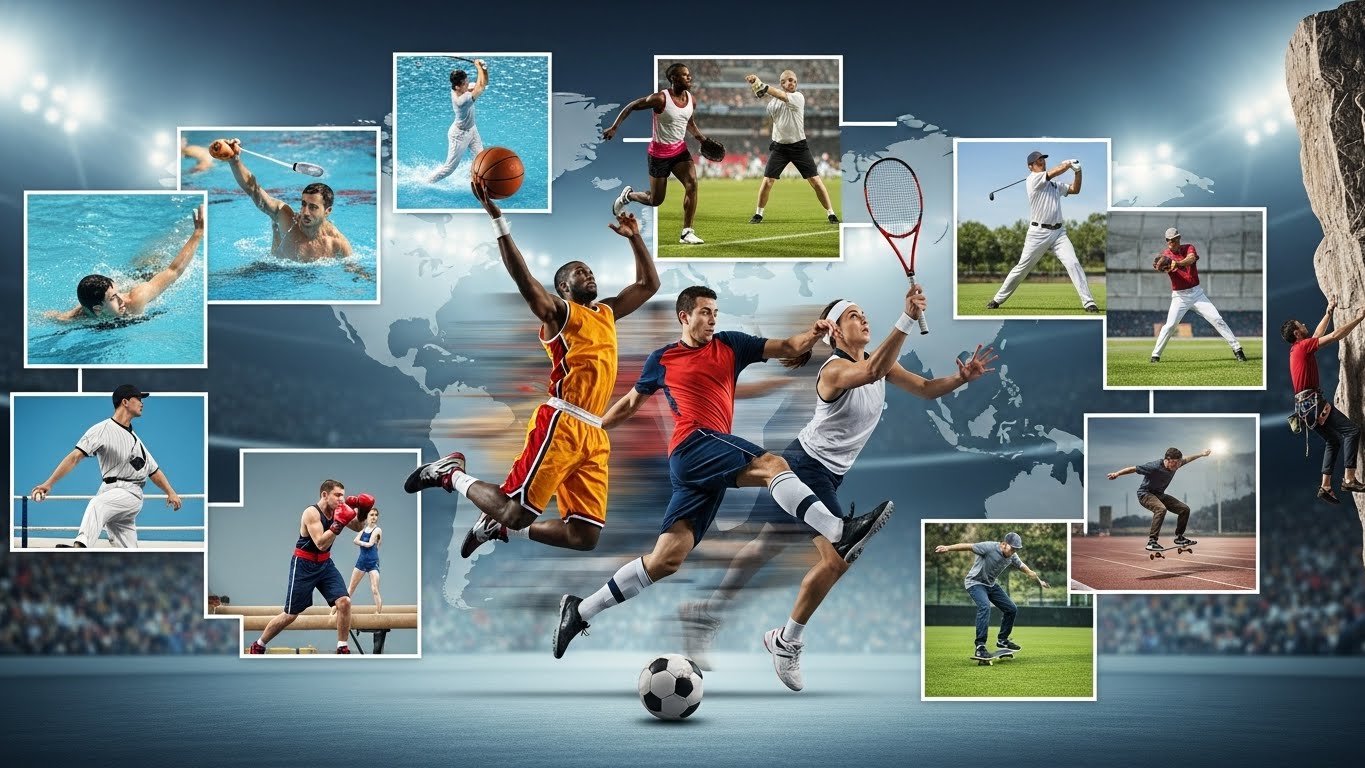Sports have transcended the realm of mere recreation, becoming a central part of human culture, offering numerous benefits that stretch far beyond the playing field. From ancient civilizations to modern-day global competitions, sports have always had a profound impact on individuals and communities. They have the power to unite, inspire, and challenge people while shaping societies and contributing to the global economy. Whether you’re a professional athlete or a weekend enthusiast, engaging in sports offers a wide range of physical, mental, and social benefits. This blog post will explore the role of sports in shaping both individual lives and the wider world, highlighting their historical significance, health benefits, social impact, and future potential.
The Historical Roots of Sports
The roots of sports can be traced back thousands of years. Many ancient civilizations had forms of athletic competition that served various purposes, from religious rituals to displays of strength and skill. The ancient Greeks are perhaps the most famous for their contributions to the world of sports, particularly through the creation of the Olympic Games, which began in 776 BCE. These games were more than just an athletic competition; they were a religious festival dedicated to the Greek gods. The idea of competing for honor and prestige has remained a core value in sports to this day.
Other civilizations, such as the Romans, Egyptians, and Chinese, also had their forms of physical contests, which often involved not only individual athletes but entire communities. For example, the Romans held gladiatorial contests, which, while brutal, were immensely popular forms of public entertainment and carried cultural significance. Sports in these early forms helped to forge a sense of identity and unity within societies, as they celebrated human prowess and physicality.
As the centuries passed, the concept of organized sports evolved. In the medieval period, jousting and archery were prominent, and by the 16th and 17th centuries, more modern forms of sports began to take shape. Horse racing, tennis, and cricket emerged during this time, eventually becoming formalized with codified rules. By the 19th century, sports became increasingly structured, with leagues, professional teams, and standardized rules beginning to take hold, especially in the Western world.
Today, sports have become a global phenomenon, with billions of people around the world participating in or watching various events. From the FIFA World Cup to the Olympics, international sporting events now bring nations together to celebrate athletic excellence.
Sports and Physical Health: More Than Just Exercise
The most obvious and widely recognized benefit of sports is the positive impact on physical health. Regular participation in sports provides a comprehensive workout for the body, improving cardiovascular health, building muscle mass, enhancing flexibility, and increasing overall endurance. Whether playing football, running, swimming, or cycling, engaging in sports helps keep the body fit and reduces the risk of chronic diseases such as heart disease, diabetes, and obesity.
In addition to these benefits, sports also promote better bone health. Weight-bearing activities like tennis, basketball, or running increase bone density and help reduce the risk of osteoporosis in later life. Sports also help maintain mobility and flexibility, which can contribute to an improved quality of life, particularly as people age.
But the benefits of sports go beyond just the physical aspects. Participating in sports has been shown to improve mental health, helping individuals cope with stress, anxiety, and depression. Physical exercise, especially in a competitive setting, triggers the release of endorphins, the body’s natural mood elevators. This leads to improved emotional well-being, better mood regulation, and an overall sense of happiness.
Sports also provide a mental escape. For many individuals, stepping onto the field or court allows them to forget about the stresses of daily life, whether work, school, or personal problems. The focus required in sports provides an opportunity to disconnect from the challenges of everyday living and immerse oneself in the present moment.
Sports as a Social and Cultural Force
Beyond their physical benefits, sports are a powerful force for social interaction and cultural cohesion. On a local level, playing in a community sports league or attending a local match brings people together. Regardless of age, gender, or socioeconomic background, sports have the ability to unite people. Whether it’s a friendly game of soccer, basketball, or even an informal street cricket match, these activities create bonds between participants and foster a sense of community.
Professional sports take this sense of unity to a global scale. International events such as the FIFA World Cup, the Olympic Games, and the Rugby World Cup bring together people from all corners of the globe to celebrate athleticism, national pride, and global unity. These events are not only about competition but about coming together to support national teams, sharing moments of joy, heartbreak, and triumph. For many fans, the outcome of these games affects their sense of identity and belonging. Supporting a national team can create a deep emotional connection, making people feel proud of their heritage and culture.
On a broader societal level, sports can be a reflection of cultural values and social norms. For example, many sports teach values such as teamwork, discipline, and hard work, which are deeply ingrained in societies around the world. In some cultures, the pursuit of excellence in sports is seen as a way to bring honor and glory to one’s community or nation. The way sports are structured in different societies can also give insight into those cultures’ priorities, whether it’s the high regard placed on individual achievement in the U.S. or the emphasis on team-based collaboration in countries like Japan.
Sports also have the power to transcend cultural and racial divides. Throughout history, athletes have used their platform to challenge social norms and promote social change. The civil rights movement in the U.S., for example, was significantly shaped by athletes such as Muhammad Ali and Jackie Robinson, who used their position in the sports world to challenge racial inequality. More recently, athletes like Colin Kaepernick have brought attention to issues of police brutality and racial injustice through their activism in the realm of professional sports. Sports provide a unique platform for social commentary, and athletes have used that platform to promote equality, diversity, and inclusion on both a national and global level.
The Development of Leadership and Life Skills Through Sports
Participation in sports goes far beyond physical fitness; it also plays an integral role in the development of leadership, teamwork, and life skills. For young people, being part of a sports team is often their first experience with structured teamwork. Whether it’s a school soccer team or a weekend basketball league, athletes learn the importance of communication, cooperation, and setting collective goals. These experiences help build leadership qualities, as athletes often have the opportunity to assume leadership roles within their teams, such as being a team captain or motivating others.
Sports also teach individuals how to manage success and failure. The nature of competition means that athletes must learn how to cope with both victory and defeat. In many ways, sports mirror life itself. Just as athletes must bounce back from a loss or setback, so too must individuals learn how to navigate challenges in other aspects of their lives, be it in their careers, relationships, or personal goals. The resilience developed through sports is invaluable and translates into real-life situations.
Team sports, in particular, emphasize collaboration and mutual support. Athletes must work together to achieve a common goal, understanding that their individual success is tied to the success of the entire team. This sense of interdependence and collective effort builds a sense of camaraderie and teaches the importance of contributing to a larger purpose.
The Role of Technology in Modern Sports
In recent decades, technology has revolutionized the world of sports. From enhanced training techniques to advanced medical treatments for injuries, technology has provided athletes with the tools to optimize their performance and extend their careers. The use of wearable devices, such as fitness trackers and smartwatches, has allowed athletes to track their performance in real-time, providing valuable insights into their physical condition and areas for improvement.
Moreover, video analysis and motion-capture technology have transformed how athletes train, enabling them to break down their techniques and refine their movements with precision. Data analytics, often employed by professional sports teams, help coaches and managers assess player performance, evaluate strategies, and make data-driven decisions. This technological advancement has changed the way sports are played, analyzed, and consumed.
The rise of esports, or competitive video gaming, is another testament to how technology is reshaping the sports landscape. Esports tournaments now draw millions of viewers, and professional gamers can earn substantial incomes from sponsorships, tournament winnings, and streaming. This new form of competition has provided an opportunity for a whole new generation to engage with sports in a way that didn’t exist before.
The Future of Sports: What Lies Ahead?
Looking ahead, sports are poised for further transformation. As technology continues to evolve, so too will the ways in which we experience and participate in sports. Virtual reality (VR) and augmented reality (AR) are set to revolutionize how fans interact with sports, providing immersive experiences where fans can feel like they are part of the action.
Similarly, advancements in biotechnology may lead to innovations in training, recovery, and injury prevention. In the future, athletes may be able to train in ways that were previously unimaginable, leading to even higher levels of performance.
Furthermore, the increasing focus on diversity and inclusion in sports is likely to continue. More women are entering professional sports, and LGBTQ+ athletes are finding greater acceptance and visibility. This inclusivity will only make sports more accessible and empowering for people of all backgrounds.
Conclusion: The Power of Sports
Sports are much more than just games; they are a reflection of the human spirit, showcasing our desire to compete, grow, and connect with others. From the health benefits to the social impact and personal development, sports continue to influence individuals and societies in profound ways. As sports continue to evolve, their ability to unite, inspire, and challenge will remain a driving force, shaping not only the future of athletics but also the culture and values of the societies that embrace them.




